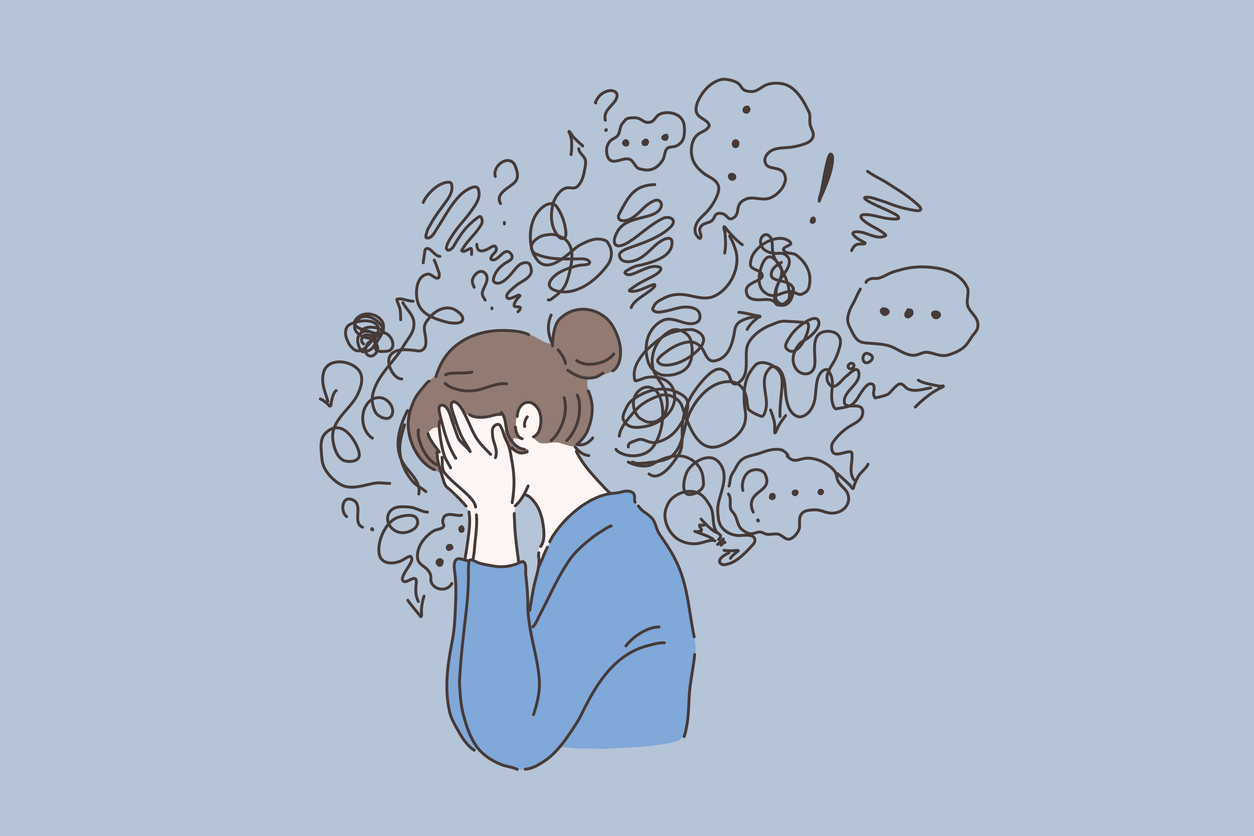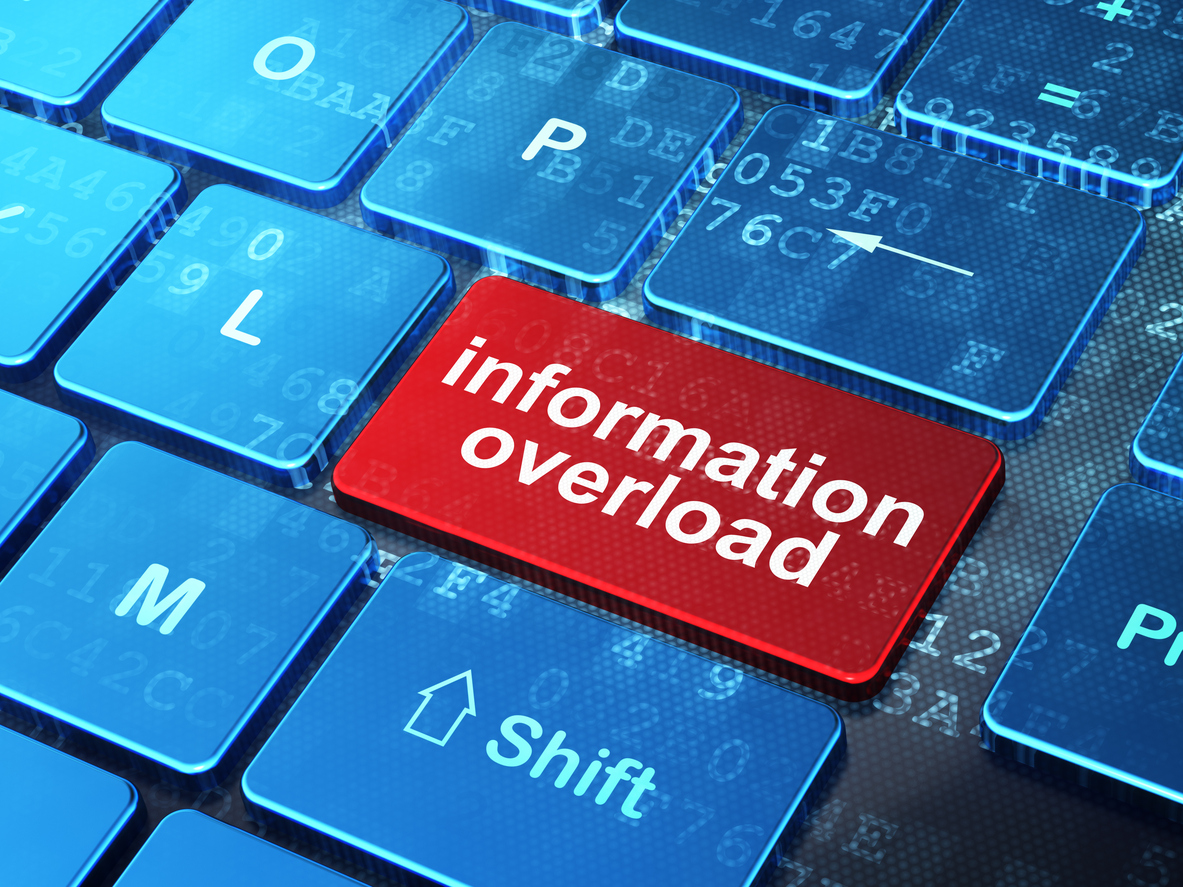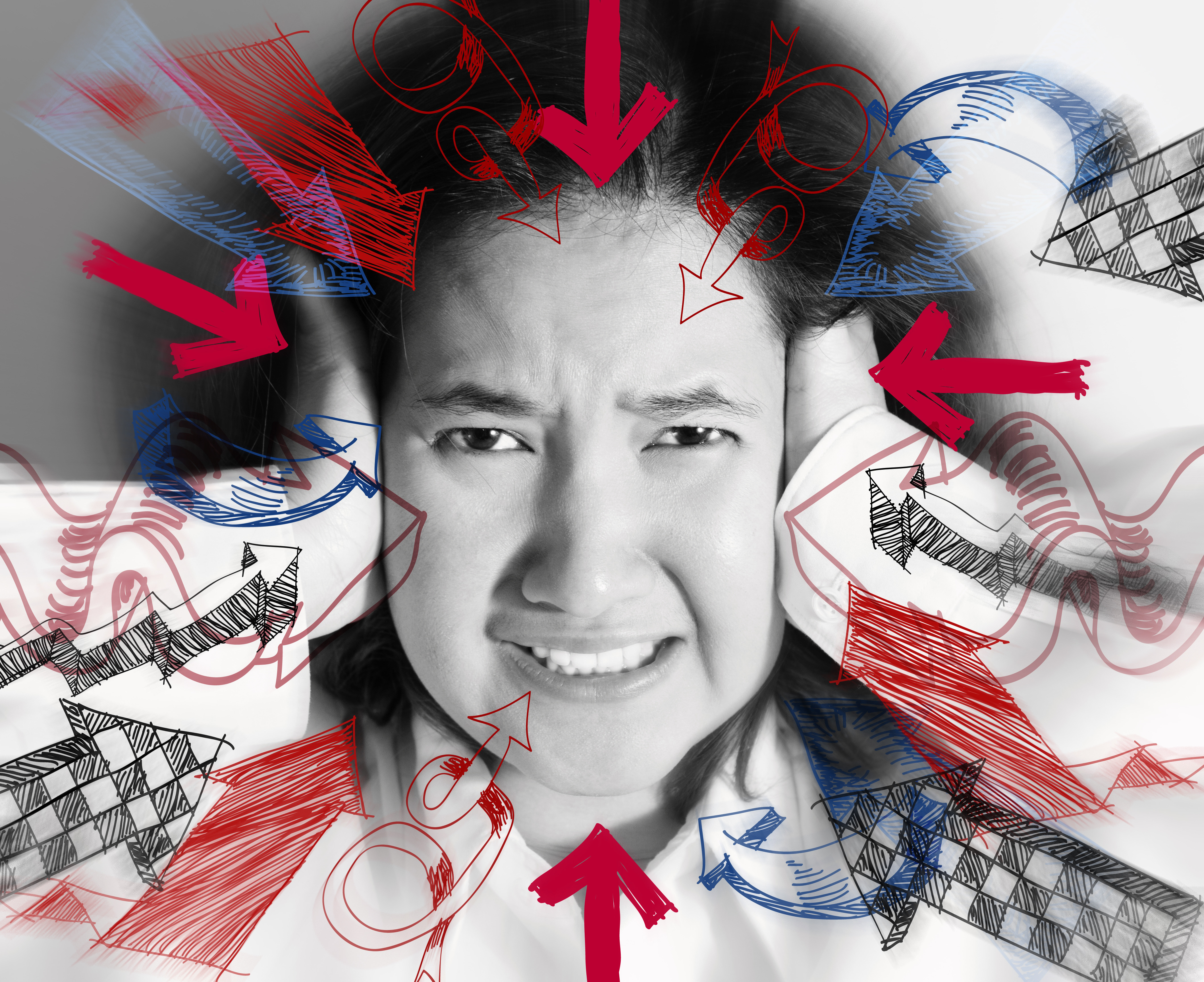Yes, the COVID-19 situation IS challenging and scary and we don’t know how it’s going to play out. The changes thrust on us over the last few months are challenging to comprehend and accept. But please keep these facts in mind about the panicky, stressed brain. Knowing what your brain is trying to accomplish in the face of this crisis can provide you with more helpful options:
1) When the brain is faced with a scary, and seemly uncontrollable situation, it goes into ‘primal’ mode. The rational, logical and ‘consequential’ thinking part of the brain, the pre-frontal cortex (PFC), takes a back seat.
We are thus less capable of thinking clearly about whatever we’re facing. This kind of thinking is likely to be what initially drove the panic-buying of toilet paper, when instead, people could have first panic-bought cold and flu medication.
Knowing and accepting this provides for the shift in perspective that allows the PFC to offer input.

2) When the brain is faced with any stress, the amygdala, which is involved in emotion processing, communicates with the hippocampus, the memory CEO, in an attempt to find out whether the specific stressor has been experienced previously. If the hippocampus recognizes the stressor, then the brain calms down, as there is a precedent for the event.
In this case, there is no precedent for what we are experiencing. Very few of us are old enough to have lived through the depression or the last World War. Our hippocampus therefore has no memory to rely on with which to guide our emotions or behavior.
3) The brain is only equipped to cope with stress for between 30 and 60 seconds. Chronic stress therefore impacts the brain negatively, leading to a shift in its ability to manage emotions. It becomes more susceptible to anxiety and depression.
The unintended consequence of the media frenzy surrounding this health challenge is likely to be increased rates of these affective states over time.
4) Emotions travel faster than thoughts in the brain. This is part of the brains survival strategy, as being fearful of a potential tiger in the bushes supports immediate action and thus increases survival versus thinking about whether the tiger is really there. We therefore carry the genes of those who erred on the side of caution, and were led by their fear. This is why the brain has a natural negative bias.
Knowing that we naturally gravitate towards negativity can be helpful in this situation because we can challenge such emotions and thoughts with rationality before they hold us hostage.
5) When the brain is stressed and anxious it craves certainty. In this situation there is very little of that available. So, it keeps on looking for patterns, explanations and solutions to the challenge, eventually feeling overwhelmed with information, but not feeling any better.

This is fertile ground for the creation of conspiracy theories among some people, which is an attempt by the brain to find clarity and induce calm, especially if the theory supports a long-held belief.
Another way some people are trying to manage this uncertainty is by looking to experts (self-proclaimed and real) to tell them what to think or do, and/or watching the news and other footage compulsively, and/or chatting on social media re’ this challenge.
This can drive panic and stress in the brain versus calming it down, because the truth is that no one knows exactly what the trajectory of this illness is.
6) Chronic stress induces short- and long-term effects on brain function, which combined with pro-inflammatory activities, lead to changes in established neural pathways and the development of new ones. The brain doesn’t care that these effects may lead to negative outcomes. It is focused on adaptation to serve survival.
The longer uncertainly remains, the more vigilant we need to be to counter negative, repetitive and ruminative thinking, so as to avoid the development of neural pathways that don’t support mental health.
7) Chronic stress is a well acknowledged immune system depressant. The immune system is compromised with circulating stress hormones, such as cortisol, because they impact the efficiency of immune defense cells to detect pathogens.
Managing stress more effectively will dampen the production of cortisol and thus improve immune function.

Solutions?
• Take a deep breath and control what you can. The first step in this process is accepting that we just don’t know enough about this challenge. You may need to revisit this idea regularly throughout each day as we move through this unprecedented time in history.
• Replace news watching with proactive activities that support mental health. Bombarding your brain with the ongoing media onslaught does the opposite of supporting your mental health.
• Use technology for good by watching and listening to how people who have endured challenges did so. We can build resiliency – it’s a neural pathway we have control over creating.
• Ask yourself if you’re hindering or helping with your social media interactions.
• Ensure you diet is supportive of overall health and wellbeing which naturally supports improved immune functioning versus focusing on only a few select nutrients. So, a diet high in soluble and insoluble fibre, nutrient dense foods, which include antioxidant and anti-inflammatory rich foods, B vitamins, and essential fats remains the focus.

• Exercise supports immune function, reduces stress and improves mood, so ensure you exercise daily – even if your gym is closed at present.
• Optimal sleep supports many mechanisms that underpin health, which include supporting optimal brain function, maintaining a stable mood, modulating appetite and maintaining a robust immune system.
No scenario is ever improved by panicking and being chronically stressed. Knowing what we know about the human brain, focus instead on shifting your perspective to being grateful for what is positive in your life and being proactive about what you can control.
In conclusion, deal with negative emotions quickly and replace them with positive thoughts about what you can control. Use the brains ability to guide thoughts versus allowing emotions to take control. This is the time to become resilient in the face of uncertainty and learn how to manage our thoughts, manage our stress, and keep ourselves and our immune system healthy.
Please keep in mind that humans are resilient and creative – let’s trust in our capacity to weather this storm together.
References
Bodas, M., Siman-Tov, M., Peleg, K., & Solomon, Z. (2015). Anxiety-Inducing Media: The Effect of Constant News Broadcasting on the Well-Being of Israeli Television Viewers. Psychiatry, 78(3), 265-276.
Chaplin, D. D. (2010). Overview of the immune response. The Journal of allergy and clinical immunology, 125(2 Suppl 2), S3-S23.
DiSalvo, D. (2013). What Makes Your Brain Happy and Why You Should Do The Opposite. NY, USA: Prometheus Books.
Godoy, L. D., Rossignoli, M. T., Delfino-Pereira, P., Garcia-Cairasco, N., & de Lima Umeoka, E. H. (2018). A Comprehensive Overview on Stress Neurobiology: Basic Concepts and Clinical Implications. Frontiers in Behavioral Neuroscience, 12(127).
LeDoux, J. E., & Pine, D. S. (2016). Using Neuroscience to Help Understand Fear and Anxiety: A Two-System Framework. Am J Psychiatry, 173(11), 1083-1093.
LeDoux, J. (2012). Rethinking the Emotional Brain. Neuron, 73(4), 653-676.
Marshall, G. D., Jr. (2011). The adverse effects of psychological stress on immunoregulatory balance: applications to human inflammatory diseases. Immunol Allergy Clin North Am, 31(1), 133-140.
McCabe, D. (2016). Feed Your Brain. 7 Steps to a Lighter, Brighter You! Sydney, Australia: Exisle.
Morey, J. N., Boggero, I. A., Scott, A. B., & Segerstrom, S. C. (2015). Current Directions in Stress and Human Immune Function. Current opinion in psychology, 5, 13-17.
Segerstrom, S. C., & Miller, G. E. (2004). Psychological stress and the human immune system: a meta-analytic study of 30 years of inquiry. Psychol Bull, 130(4), 601-630.

